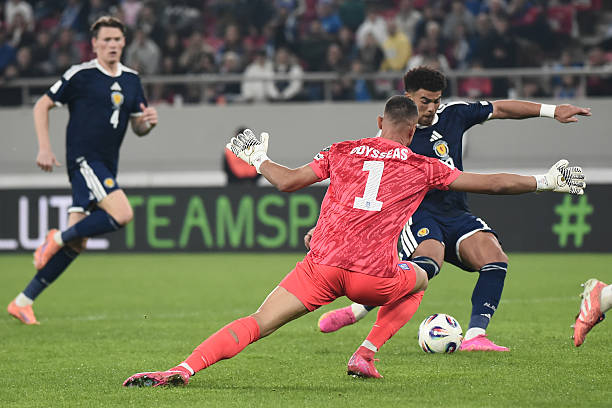
Sports betting has long been one of the most popular hobbies across the UK and Ireland with betting on horse racing and football matches ingrained into the culture. However, with greater competition and innovation from casino games like slots, has sports betting been left behind? In this article, we’ll look at whether sports betting is as popular as it once was and what the future could look like for the hobby.
How Popular Is Sports Betting?
Despite increased competition from the vibrant online casino world, a Statista study found that as of January 2024, sports betting is still the most popular form of gambling within the UK¹. The same survey also found that almost 10% of the entire population had participated in sports betting in some form within the last year. While the in-person side of sports betting has taken a hit with many bettors closing their physical venues, the shift to the online forum has helped to keep these numbers stable.
The 2023 and 2024 Premier League season saw 35.7 million viewers, representing a huge 59% of the entire UK television audience². Sports and gambling go hand in hand in the UK and Ireland with football also being the most popular sport to bet on³. Many companies appeal to football fans by offering bets on every area of the game including cards, free kicks and corners. The same YouGov report also found that fans of sports like football and horse racing are more likely to place a bet than the average person.
Horse racing is another sport which thrives in the UK and Ireland and is the second biggest in terms of attendance numbers and revenue⁴. The Irish are particularly famed for their ability in the sport with trainer Willie Mullins winning all seven of the races on the final day of the 2025 Cheltenham festival. Betting is seen as part of the experience for many fans of horse racing with 49% saying they had placed a sports bet within the last twelve months in the YouGov study. As the popularity of these sports remains strong, we think it’s unlikely that there will be a significant change in the number of fans placing a bet.
Changes in Regulations to Sports Betting
There are a few changes to regulations surrounding advertising that will have an impact on many sports betting providers across the UK. In 2022, changes to regulations prevented the appearance of popular sports people like football players in gambling adverts. These changes were aimed at reducing the exposure of young people, especially children, to gambling. Earlier changes prevented betting companies from advertising during sports events like half time during football matches before 9PM, with the exception of horse racing⁵.
There’s a couple of upcoming changes which will also change advertisement methods, like the removal of betting brands from football shirts. As of the 2026 Premier League season, gambling providers have voluntarily agreed not to advertise on football player’s shirts. These changes specifically target football, the second most popular sport to bet on. While it will make advertising, in particular customer acquisition, more difficult, it’s unlikely to result in a decrease in popularity because of how ingrained betting is with these sports.
How Popular Has Sports Betting Been in the Past?
Sports betting has a lengthy and strong history within the UK and Ireland. The earliest recorded horse races within the UK came in 1539 at Chester; there are mentions of bets placed upon the races but no evidence of a formal betting system using odds. The sport boomed in popularity under King Charles II who himself was a jockey and even built a palace at Newmarket so he could watch the races. In Ireland he helped to further the sport by making the Curragh a King’s Plate Race, one with high prestige and prize money.
Until the popularisation of the railways throughout the 1800s, horse racing was dominated by the upper class. As a sport that requires instant information, only those who could afford to travel to courses were able to participate. Following the creation of railways to serve the working class around popular courses, horse racing skyrocketed in popularity. By the 1850s in London there were around 150 betting houses designed to cater towards the working class. Following this up, the 1960 Gambling Act expanded the number of legal forms of gambling and distributed more than 13,000 licences.
Sports betting was truly revolutionised towards the end of the 20th century when live results could be accessed using the internet. The first online betting platform, Intertops, was launched in 1996 to give users access to sports betting from the comfort of their own home. In 2000 Intertops launched the first betting site that was accessible using a mobile phone, allowing customers to bet on the go. Improving technology, social media ads and extra bonuses have pushed sports betting towards the online world. The improved accessibility provided by online betting has led to a boom in player numbers and almost doubled revenue between 2015 and 2023.
Have There Been Any Indications of Decreasing Popularity?
While the popularity of sports betting remains strong overall, some aspects have been experiencing a decline. The most obvious area of decline has been in-person betting venues which have closed in large numbers across the UK and Ireland.
In Ireland there have been a number of indicators of the struggle of in-person betting venues. The Irish Bookmakers Association went as far as to suggest that bookie shops rebrand as ‘entertainment centres’ incorporating casino games like blackjack, roulette and slots. Since 2008, more than 500 in-person bookies have closed down and revenue has seen a decrease of over €1 billion⁶.
Unable to compete with their online competitors and with greater overheads such as rent, many providers have now moved entirely online. The Irish betting power Paddy Power, recently merged with the largest online betting company in the world, Betfair, highlighting the online shift. The future of betting shops throughout the UK will be one of adapting by introducing further game options and looking for online revenue opportunities in order to survive.
Why Are So Many Betting Shops Closing?
The most obvious reason behind the closure of in-person betting shops has been the growth of the online sector. Players want the opportunity to play from anywhere at any time, rather than having to travel to an in-person venue to place their bets. Online providers don’t just offer convenience, but usually provide greater bonus opportunities, more payment methods and continual updates on sports. These benefits, combined with higher expenses associated with running in-person venues, means that the majority of providers have moved their operations online. Sports betting is an incredibly competitive market, especially in the online sphere, with high costs of customer acquisition and marketing.
While sports betting remains the most popular form of gambling in the UK, there has also been massive growth amongst competing formats. The improved accessibility of games like poker, blackjack, roulette and slots through online platforms means players now have a much wider choice. There’s also great opportunities for innovation, with the introduction of technology like Virtual Reality, and continual game development.
Slots have become hugely popular with audiences across the UK and Ireland because of their low costs and impressive variety. Players can choose from exciting options like progressive jackpots, where the prize money grows with plays, to VR slots which use VR headsets to immerse them within a casino environment. It’s hard for sports betting to compete with this kind of variety of choice, innovation and value for money. While for many players, the simplicity of sports betting is what makes it so appealing, for others it means sports betting has been left behind.
Is Sports Betting Still Popular?
There’s no doubt that sports betting is still the most popular form of gambling within the UK and Ireland, but it also faces unprecedented challenges. While the shift online initially saw a boom in popularity through increased accessibility, it also led to high levels of competition and greater player choice in terms of games. The popularity of sports betting in physical venues has been impacted by this trend with many closing down. Despite this, the strong connection between the UK and Ireland’s most watched sports and gambling has ensured sports betting remains incredibly popular and we think it’s likely to remain this way in the future.
- 1: Sports Betting in the UK- Statistics & Facts, Written by Statista, Published by Statista.
- 2: The Numbers That Show That This Has Been a Season Like No Other, Written by the Premier League, Published by the Premier League.
- 3: Gambling and Sports in the UK- a Deep Dive, Written by Rishad Dsouza, Published by YouGov.
- 4: Horseracing Industry: Government Support and Recent Developments, Written by James Goddard, Published by the House of Lords Library.
- 5: Gambling Advertising in Sport, Written by Grace Alston and John Woodhouse, Published by House of Commons Library.
- 6: Irish Bookies Struggling with Revenue Decline, Written by Siobhan Aslett, Published by Irishluck.








